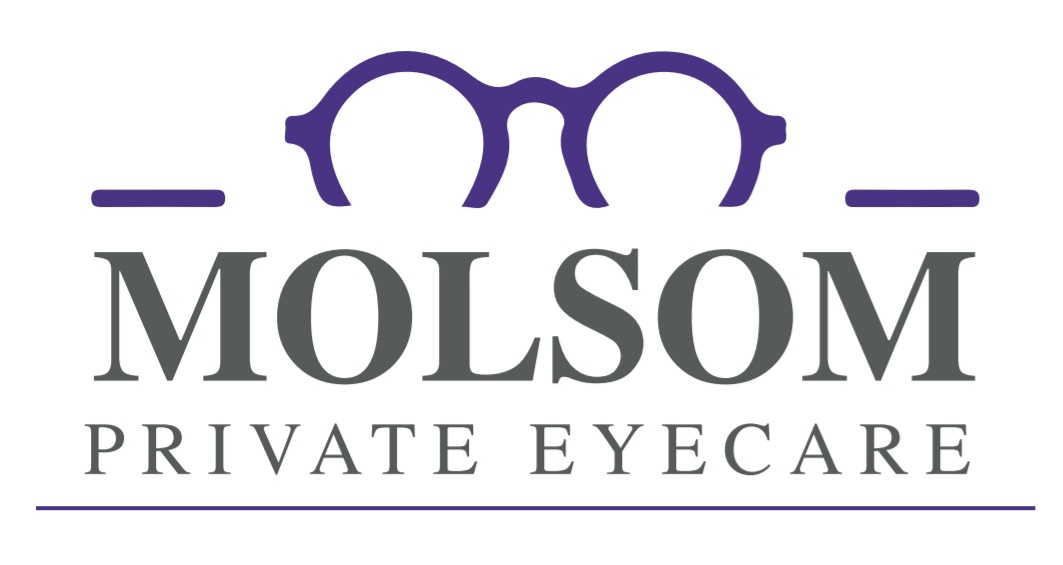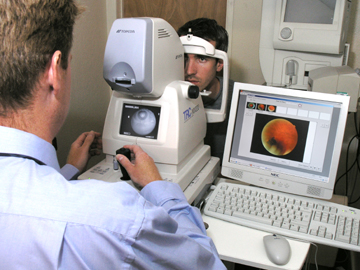World Glaucoma Week 2019 takes place between March 10th and 16th this year.
The idea behind World Glaucoma Week is to raise awareness of this serious eye condition.
What is Glaucoma?
Glaucoma is an eye disease which effects the optic nerve, this connects your eye to your brain. The nerve can be damaged by extra pressure in your eye caused by fluid building up. There are two types of Glaucoma which we explain below;
Chronic Glaucoma
This type of Glaucoma is the more commonly diagnosed and happens slowly. It can occur in anyone of any age. Risks of Glaucoma can increase with the following factors;
- Being over the age of 40
- If you are closely related to someone with Chronic Glaucoma
- You are very short-sighted
- If you are of African or Caribbean origin
- You have raised pressure within your eye – this is called Ocular Hypertension (OHT)
Sufferers of Chronic Glaucoma do not experience any symptoms, however having regular eye examinations can help to identify the condition in its early stages. Having a parent, sibling, or child who suffers with Glaucoma and being over 40 may mean you could be entitled to an NHS funded eye exam.
During an eye examination the Optometrist uses an Ophthalmoscope (or slit lamp) to shine a light into your eye enabling them to look at the nerve at the back of your eye.
Here at Molsom & Associates we can also offer an advanced eye examination which includes having an OCT (Ocular Coherence Tomography). This technology captures both a fundus photograph and a cross sectional scan of the back of the eye. During your eye exam this information can help our experienced Opticians identify many common eye conditions including Glaucoma. Ask our staff for more information.
If you are a Platinum Eyecare Plan member you automatically will receive an advanced eye examination therefore giving you the peace of mind you deserve.
Our Opticians may also measure the pressure inside your eye by gently blowing a puff of air in your eyes. You may also be asked to complete a visual field test which assesses how wide your field of vision is when you are looking forward.
Treatment
If you are diagnosed with Glaucoma a referral to an Ophthalmologist may see you prescribed with daily drops to help reduce the pressure. It is vital that these drops are used as directed, even if you do not think they are helping they are! Sometimes an operation may be required to help drain away the fluid.
Acute Glaucoma
Acute Glaucoma is when the drainage channels inside your eyes are unable to drain away and this causes the pressure inside your eye to rapidly increase. Symptoms such as an ache which comes and goes, seeing coloured rings around white lights and sometimes red eyes can all present with Acute Glaucoma. With these symptoms it is important to act quickly – even if the symptoms come and go as your vision may be damaged each time. Symptoms which come and do not go away should always be presented straight to your local Accident and Emergency Department. Please contact our Optical Assistants if you feel you need help or advice.
People who are more likely to get acute glaucoma are;
- People over the age of 40
- Women
- East Asian or South Asian origin
- People with a family history of closed – angle glaucoma
- People who are long-sighted
The most important message this World Glaucoma Week is for everyone to have regular eye examinations. Call today on 01775 713366 if you haven’t had an eye examination recently or if you need any help or advice.
For more information follow the link below;
https://www.glaucoma-association.com/about-the-iga/what-we-do/campaigns/world-glaucoma-week-2019

